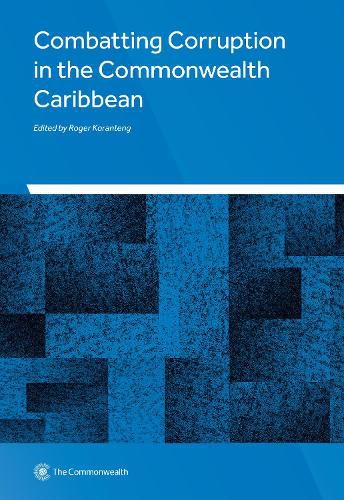Readings Newsletter
Become a Readings Member to make your shopping experience even easier.
Sign in or sign up for free!
You’re not far away from qualifying for FREE standard shipping within Australia
You’ve qualified for FREE standard shipping within Australia
The cart is loading…






This book, Combatting Corruption in the Commonwealth Caribbean, has been published by the Public Sector Governance Unit of the Commonwealth Secretariat to highlight the ways in which six Commonwealth Caribbean countries have made significant progress in combatting corruption. The Bahamas, Barbados, Dominica, Grenada, Saint Lucia and St Vincent and the Grenadines. These countries have been selected due to their relatively strong scores on Transparency International's Corruption Perceptions Index (CPI) or because they have registered a significant improvement in their score on this index over the past decade. The book identifies the factors and institutions within these six countries that have contributed to the reduction of the impact of corruption and tries to account for the elements - both technical and political - that have enabled them to implement successful anti-corruption strategies. It includes lessons learnt, challenges and recommendations
$9.00 standard shipping within Australia
FREE standard shipping within Australia for orders over $100.00
Express & International shipping calculated at checkout
This book, Combatting Corruption in the Commonwealth Caribbean, has been published by the Public Sector Governance Unit of the Commonwealth Secretariat to highlight the ways in which six Commonwealth Caribbean countries have made significant progress in combatting corruption. The Bahamas, Barbados, Dominica, Grenada, Saint Lucia and St Vincent and the Grenadines. These countries have been selected due to their relatively strong scores on Transparency International's Corruption Perceptions Index (CPI) or because they have registered a significant improvement in their score on this index over the past decade. The book identifies the factors and institutions within these six countries that have contributed to the reduction of the impact of corruption and tries to account for the elements - both technical and political - that have enabled them to implement successful anti-corruption strategies. It includes lessons learnt, challenges and recommendations